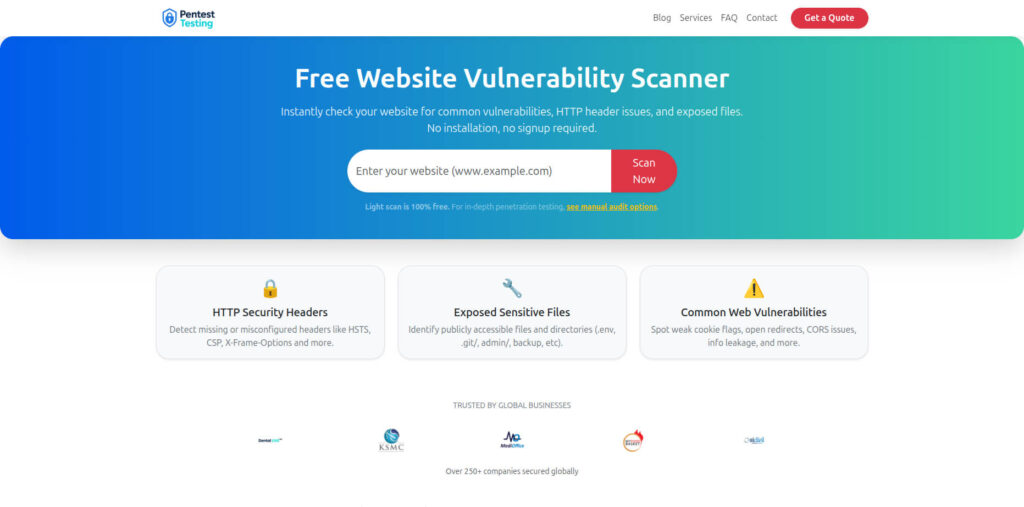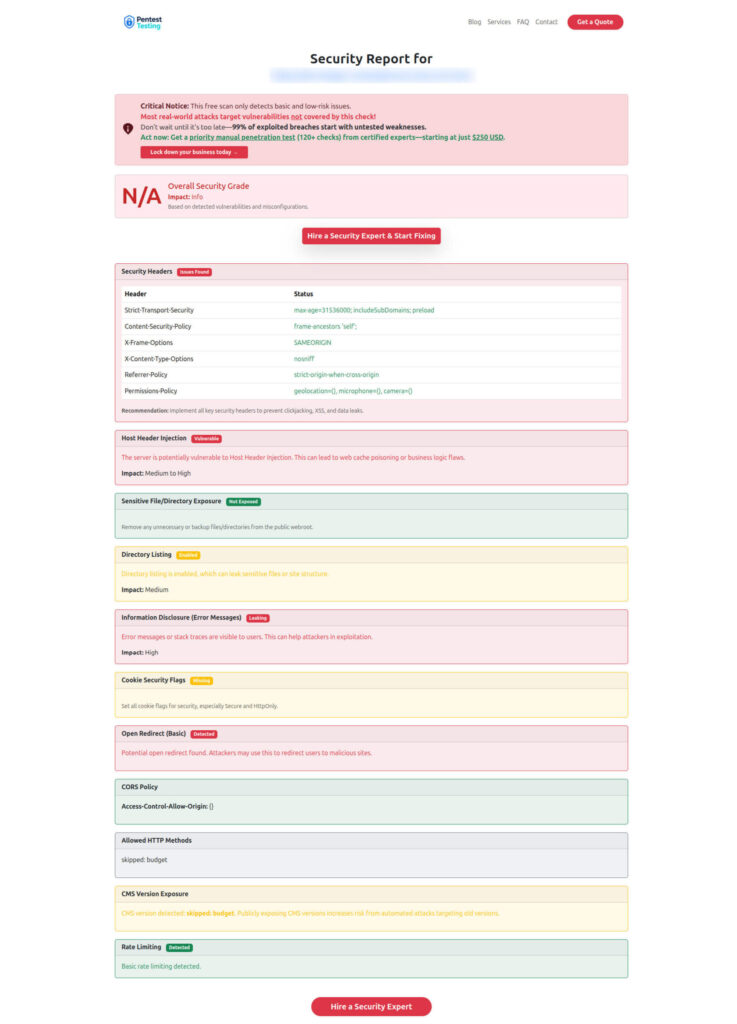CVE-2025-59489 Unity Mitigation: Secure Your Build Pipeline
If you ship Unity-based apps or games, treat CVE-2025-59489 as a supply-chain event. Your priorities are: (1) rebuild/publish with fixed Unity Editor lines, (2) harden the CI/CD path so this class of unsafe file loading (local file inclusion) can’t reappear, and (3) prove your fleet is clean. This post gives a developer-first playbook—with real, copy-pasteable examples—to execute a fast, auditable CVE-2025-59489 Unity mitigation program.

New: Read our CVE-2025-48384 Git mitigation guide—7 steps to harden CI/CD against malicious submodules.
https://www.cybersrely.com/cve-2025-48384-git-mitigation/
1) What the bug is (plain English)
Vulnerability class: unsafe file loading / local file inclusion (LFI-style) paths in Unity runtime behavior that could allow unintended local file access under specific conditions.
Severity: CVSS 8.4 (High).
Impact: Risk of unintended local file reads/execution paths across desktop and mobile builds; potential for sensitive data exposure or privilege-crossing behavior via crafted inputs.
Affected Unity Editor lines & fixed versions: Unity has shipped patched Editor builds across supported lines. Action: update to the latest patch for your active LTS/Tech Stream line and rebuild. If you maintain multiple branches (e.g., 2021 LTS + 2022 LTS), upgrade each line to its fixed patch and standardize a minimum version guard in CI. (Use the version-gating examples below.)
2) Remediation paths (pick the fastest safe route)
Option A — Rebuild & republish with patched Editors (preferred)
- Upgrade your Unity Editor to the fixed patch for your line.
- Rebuild all affected platforms (Win/macOS/Linux, iOS, Android, consoles).
- Republish and notify users in release notes (“Fix: CVE-2025-59489 Unity mitigation” with a short non-technical description).
- Close the loop with telemetry checks (see §4) and a version-compliance report.
Option B — Vendor patcher (limited coverage)
Unity may provide a patcher/hotfix path for some targets. Use this only when:
- A full rebuild breaks anti-cheat, console submissions, or external compatibility windows.
- You can prove the patcher’s coverage for your target platforms.
- You still plan a full rebuild for long-term support.
If your title uses anti-cheat or platform-restricted binaries, validate signing and anti-tamper policies before distributing patched runtimes. When in doubt, prefer a clean rebuild/publish.
Use our free scanner (fast visibility)
Free Website Vulnerability Scanner: run a quick outside-in check for headers/CSP & common risks while you roll out fixes:

3) CI/CD hardening so it doesn’t happen again
Goal: make unsafe file loads and unverified binaries impossible to ship.
3.1 Lock runtime binaries (read-only + signature checks)
Bash (post-build step): mark sensitive binaries read-only in build artifacts.
# Lock UnityPlayer and core data after build
find build/ -type f \( -name "UnityPlayer.dll" -o -name "UnityPlayer" -o -name "libunity.so" \) \
-exec chmod a-w {} \; -exec echo "locked: {}" \;PowerShell (Windows packaging):
$targets = Get-ChildItem -Recurse -Path ".\build" -Include UnityPlayer.dll
foreach ($t in $targets) {
# Make read-only
Set-ItemProperty -Path $t.FullName -Name IsReadOnly -Value $true
# Record signature + hash
$sig = Get-AuthenticodeSignature $t.FullName
$sha = (Get-FileHash $t.FullName -Algorithm SHA256).Hash
"{0},{1},{2},{3}" -f $t.FullName,$sig.SignerCertificate.Subject,$sig.Status,$sha | Out-File -Append build\locked-binaries.csv
}3.2 Mandatory checksum verification (fail builds on drift)
Generate “golden” hashes for shipped binaries and verify on every build:
# Generate baseline on a known-good build
find build/Release -type f -name "UnityPlayer*" -o -name "libunity.so" \
| sort | while read -r f; do sha256sum "$f"; done > ci/baseline.sha256
# Verify in CI for each platform
sha256sum --check ci/baseline.sha256
# non-zero exit (failing CI) if any mismatch occurs3.3 SBOM + artifact signing (provenance)
CycloneDX (example via cdxgen or similar):
# Generate an SBOM for your game/app artifact directory
npx @cyclonedx/cdxgen -o sbom.cdx.json -t directory build/Sign the release archive and attest provenance (example using cosign-style flow):
# Create release archive
tar -C build -czf dist/MyGame-1.2.3-linux.tar.gz .
# Sign & create an attestation (supply-chain metadata)
cosign sign-blob --output-signature dist/MyGame-1.2.3-linux.tar.gz.sig dist/MyGame-1.2.3-linux.tar.gz
cosign attest --predicate sbom.cdx.json --type cyclonedx dist/MyGame-1.2.3-linux.tar.gz3.4 Block untrusted URI handlers and local file loads at runtime (Unity C#)
Centralize path & URI validation before any file I/O:
// Assets/Scripts/Security/PathGuard.cs
using System;
using System.IO;
public static class PathGuard
{
static readonly string[] AllowedSchemes = { "https" };
static readonly string[] AllowedRoots = {
UnityEngine.Application.persistentDataPath,
UnityEngine.Application.streamingAssetsPath
};
public static bool IsSafe(string input)
{
if (string.IsNullOrWhiteSpace(input)) return false;
// Block file:// and other schemes
if (Uri.TryCreate(input, UriKind.Absolute, out var uri))
{
if (!Array.Exists(AllowedSchemes, s => s.Equals(uri.Scheme, StringComparison.OrdinalIgnoreCase)))
return false;
return true; // only https:// allowed for remote loads
}
// Normalize and enforce allowed roots for local paths
var full = Path.GetFullPath(input);
foreach (var root in AllowedRoots)
{
var normRoot = Path.GetFullPath(root) + Path.DirectorySeparatorChar;
if (full.StartsWith(normRoot, StringComparison.OrdinalIgnoreCase))
return true;
}
return false;
}
public static Stream OpenReadSafe(string path)
{
if (!IsSafe(path)) throw new UnauthorizedAccessException("Blocked unsafe path/URI");
return File.OpenRead(Path.GetFullPath(path));
}
}Unity Test (NUnit) to prevent regressions:
using NUnit.Framework;
public class PathGuardTests
{
[Test] public void Blocks_File_Uri()
=> Assert.False(PathGuard.IsSafe("file:///etc/passwd"));
[Test] public void Blocks_Absolute_C_Drive()
=> Assert.False(PathGuard.IsSafe("C:\\Windows\\System32\\config\\SAM"));
[Test] public void Allows_StreamingAssets_Relative()
=> Assert.True(PathGuard.IsSafe(UnityEngine.Application.streamingAssetsPath + "/level1.bin"));
[Test] public void Allows_HTTPS_Remote()
=> Assert.True(PathGuard.IsSafe("https://cdn.example.com/levelpack.uab"));
}3.5 Post-release telemetry (catch bad behavior fast)
Instrument suspicious attempts:
try {
using var s = PathGuard.OpenReadSafe(userProvidedPath);
} catch (UnauthorizedAccessException ex) {
// Send minimal, privacy-safe telemetry with the blocked path prefix only
Telemetry.Emit("blocked_file_load", new { reason="unsafe_path", prefix=System.IO.Path.GetPathRoot(userProvidedPath) });
}4) Fleet validation: find & fix vulnerable UnityPlayer fast
4.1 Desktop fleet (Windows/macOS/Linux)
Windows (PowerShell): extract version, hash, signature
$rows = @()
Get-ChildItem -Recurse -Path "C:\Program Files", "C:\Program Files (x86)" -Include UnityPlayer.dll |
ForEach-Object {
$f = $_.FullName
$ver = (Get-Item $f).VersionInfo.FileVersion
$sig = Get-AuthenticodeSignature $f
$sha = (Get-FileHash $f -Algorithm SHA256).Hash
$rows += [pscustomobject]@{
Path=$f; Version=$ver; SigStatus=$sig.Status; Publisher=$sig.SignerCertificate.Subject; SHA256=$sha
}
}
$rows | Export-Csv .\unityplayer-inventory.csv -NoTypeInformation
# Later: compare $ver against your fixed minimum per line.macOS (bash): frameworks & app bundles
# Find UnityPlayer.framework or embedded Unity libs and list versions
mdfind "kMDItemFSName == UnityPlayer.framework || kMDItemFSName == UnityPlayer" \
| while read -r p; do
v=$(/usr/libexec/PlistBuddy -c 'Print :CFBundleShortVersionString' "$p/Resources/Info.plist" 2>/dev/null || echo "unknown")
shasum -a 256 "$p/UnityPlayer" 2>/dev/null | awk '{print $1"\t'"$p"'\t'"$v"'"}'
doneLinux (bash):
# Look for libunity.so under common install locations
find /opt /usr /home -type f -name "libunity.so" 2>/dev/null \
| while read -r f; do
sha256sum "$f"
done > unity-libs.sha2564.2 Mobile apps (APK/IPA at rest)
Python: scan APKs for libunity + record hashes
import zipfile, sys, hashlib, json
apk = sys.argv[1]
hits = []
with zipfile.ZipFile(apk) as z:
for name in z.namelist():
if name.startswith("lib/") and name.endswith("/libunity.so"):
data = z.read(name)
hits.append({"path": name, "sha256": hashlib.sha256(data).hexdigest()})
print(json.dumps({"apk": apk, "unity_libs": hits}, indent=2))Python: scan IPAs for UnityFramework
import zipfile, sys, hashlib, json
ipa = sys.argv[1]
hits = []
with zipfile.ZipFile(ipa) as z:
for name in z.namelist():
if "UnityFramework.framework/UnityFramework" in name:
data = z.read(name)
hits.append({"path": name, "sha256": hashlib.sha256(data).hexdigest()})
print(json.dumps({"ipa": ipa, "unity_framework": hits}, indent=2))Maintain a simple policy file (JSON) mapping minimum safe UnityPlayer/UnityFramework versions per platform. Your build gates and fleet checks compare discovered versions/hashes against this policy and block releases or trigger hotfix rollouts if anything is below the floor.
5) Add regression gates to CI
GitHub Actions: enforce minimum Unity Editor version
# .github/workflows/unity-version-guard.yml
name: unity-version-guard
on: [pull_request]
jobs:
guard:
runs-on: ubuntu-latest
steps:
- uses: actions/checkout@v4
- name: Read required Unity version
run: echo "MIN_UNITY=$(cat ci/min_unity.txt)" >> $GITHUB_ENV
- name: Detect project version
run: |
VER=$(grep -Eo 'm_EditorVersion: .+' ProjectSettings/ProjectVersion.txt | awk '{print $2}')
echo "CUR_UNITY=$VER" >> $GITHUB_ENV
- name: Compare
run: |
python - <<'PY'
import os
def cmp(a,b):
def p(v): return [int(x) for x in v.split('f')[0].split('.')]
A,B=p(os.getenv('CUR_UNITY')),p(os.getenv('MIN_UNITY'))
exit(0 if A>=B else 1)
PYGitLab CI: verify checksums & SBOM before publish
verify_release:
stage: test
image: alpine:3.20
script:
- sha256sum --check ci/baseline.sha256
- test -f sbom.cdx.json && echo "SBOM present" || (echo "Missing SBOM" && exit 1)Pre-merge tests for unsafe loads (Unity PlayMode test runner):
# Run Unity tests headless with your PathGuardTests suite
name: unity-tests
on: [pull_request]
jobs:
tests:
runs-on: ubuntu-latest
steps:
- uses: actions/checkout@v4
- name: Run Unity tests
run: |
./Unity/Editor/Unity -runTests -projectPath . \
-testPlatform PlayMode -logFile - \
-testResults results.xml6) Release, communicate, prove
- Changelog: “Security: CVE-2025-59489 Unity mitigation—rebuilt on patched Unity Editor lines; added runtime guards; enabled signed artifacts & SBOM.”
- Evidence pack: SBOM, signed release, CI logs showing version checks, and checksum reports.
- User comms: short, plain-language note in store listings/patch notes.
- Audit trail: keep your policy JSON, test artifacts, and fleet snapshot reports in a ticket.
Quick checklist (copy/paste into your tracker)
- Upgrade Unity Editor lines to fixed patches for all supported platforms
- Rebuild, sign, publish; verify checksums in CI/CD
- Enforce PathGuard + tests; block
file://& absolute unsafe paths - Generate SBOM + attest provenance; store with release
- Fleet scan (desktop + mobile) for UnityPlayer/UnityFramework versions/hashes
- Add CI gates (editor version floor, checksum verification, tests)
- Publish release notes; monitor post-release telemetry
- Archive evidence pack for auditors
Sample report screenshot to show stakeholders the kind of output they’ll see to check Website Vulnerability:

Related services (hands-on help)
- Risk Assessment Services — map Unity usage, CI paths, and control gaps; deliver a prioritized fix plan and evidence checklists.
- Remediation Services — implement version gates, runtime guards, signing, and audit-ready artifacts with you.
Recent posts from the Cyber Rely blog (stay current)
- CISA Emergency Directive 25-03: DevOps Tasks for Cisco 0-Day (checklist-style actions for SRE & CI teams).
- npm supply chain attack 2025: ‘Shai-Hulud’ CI fixes (hygiene for tokens, trusted publishing).
- Gate CI with CISA KEV JSON: Ship Safer Builds (turn KEV into a hard gate).
- Chrome V8 KEV: CVE-2025-10585 Deep Dive (browser fleet response tactics).
- Git CVE-2025-48384: Safe Submodules in Practice (stop risky Git behavior in CI).
Need help fast?
We can stand up CI gates, rebuild safely, and produce an audit-ready evidence pack. Start with a free quick check at free.pentesttesting.com, then book Risk Assessment and Remediation to finish the job with proof.
Contact: [email protected]
🔐 Frequently Asked Questions (FAQs)
Find answers to commonly asked questions about CVE-2025-59489 Unity Mitigation.